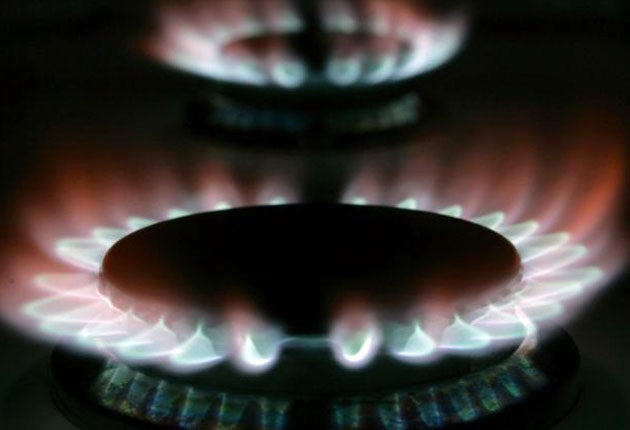Big Six energy firms face investor exodus over political interference in pricing

Fund managers controlling billions of pounds invested in UK energy companies have warned that they are considering pulling out of the sector because of political interference in the market.
The Big Six suppliers have been heavily criticised in recent weeks over the prices they are charging customers, with Centrica, npower, Scottish Power, SSE, E.ON and EDF – many of which have recently introduced above-inflation price rises – being accused of exploiting vulnerable consumers while at the same time making huge profits.
The controversy prompted the Labour leader, Ed Miliband, to promise a price freeze for 20 months if his party wins the 2015 election. In response energy companies claimed any such action would curtail their ability to invest and could even lead to blackouts. The threat of political intervention has hit the share prices of the Big Six, and raised questions about future profitability. The speculation has angered some of the country’s leading institutional investors, who have said privately that they will act if the meddling continues.
Another fund manager, James Smith of Premier Asset Management, said: “We run a couple of funds that have exposure to utilities across the world, including the UK where shares have fallen in recent weeks. We are considering whether things are going to get worse because if they do we might need to reassess our strategy relating to our UK investments.
“It’s right to talk about affordability but it must be done in the right way. We can’t view utilities as charities – you won’t find many private companies out there that aren’t looking to charge the most they can on whatever product they make or supply. It is right for regulators to ensure that the market is operating in a competitive manner. The alternative to the status quo – nationalisation – would be unlikely to reduce prices.”
The debate over energy costs is set to intensify in the run-up to George Osborne’s Autumn Statement on 4 December, when the Chancellor is expected to roll back the green levies imposed on energy companies. Such action has been vehemently opposed by the Liberal Democrats, with the Energy Secretary, Ed Davey, saying that he would fight “like a tiger” to preserve the incentives, which increase bills while promoting energy efficiency.
The energy company obligation (ECO) – which requires the Big Six better to insulate the homes of Britain’s poorest households – will add £47 a year, or 4 per cent, to an expected average bill of £1,267 in 2013, while the warm home discount, which entitles some vulnerable people to a £135 discount, and the rollout of smart meters will add another £11 and £3 respectively to the average bill this year.
Chris Murphy, UK equity income manager at Aviva Investors, said: “Profit-making is not a bad thing. Energy companies are required to source a specified proportion of the electricity they supply from renewable sources. The decommissioning of coal-fired plants and the investment in alternative [methods of generation] is expensive.
“Energy companies have to be allowed to make profits to fund the costs of this reinvestment, and naturally, some of these costs will be passed on to the consumer. If energy companies are not allowed to make a profit, there will be under-investment in alternative energy in the UK and we will have an energy crisis on our hands,” he said.
The issue of investment and profits is a contentious one, however, with experts interviewed by The Independent last week pointing out that the retail arms of the Big Six are likely to require little in the way of capital expenditure given that they amount to little more than call centres, while the power generation arms of the companies enjoy profit margins that in some cases exceed 30 per cent.
Investors say they are particularly angry at the comments from Mr Miliband given his role as Secretary of State for Energy and Climate Change under the last Labour government. Mr Smith added: “He is ignoring the role he played in increasing the environmental costs faced by utilities. Nor does his sticking-plaster approach do anything to address why prices are rising. Perhaps he will legislate to stop supermarkets increasing the price of bread when wheat prices increase?”
Excess profits? firms to unveil results
The British Gas owner Centrica and its rival energy giant SSE unveil their latest financial figures today.
The suppliers are under pressure over price increases for consumers after Labour challenged the Government by pledging to freeze tariffs if it wins power. Critics have challenged the assertion that rising wholesale energy costs and green levies are to blame for the sharp price rises. Centrica’s chief executive Sam Laidlaw has decided not to take his bonus this year, which could be worth up to £1.7m. He announced his decision after British Gas revealed last month that electricity bills were to rise by 10.4 per cent and gas tariffs by 8.4 per cent. The move affected 7.8 million households.
Subscribe to Independent Premium to bookmark this article
Want to bookmark your favourite articles and stories to read or reference later? Start your Independent Premium subscription today.

Join our commenting forum
Join thought-provoking conversations, follow other Independent readers and see their replies